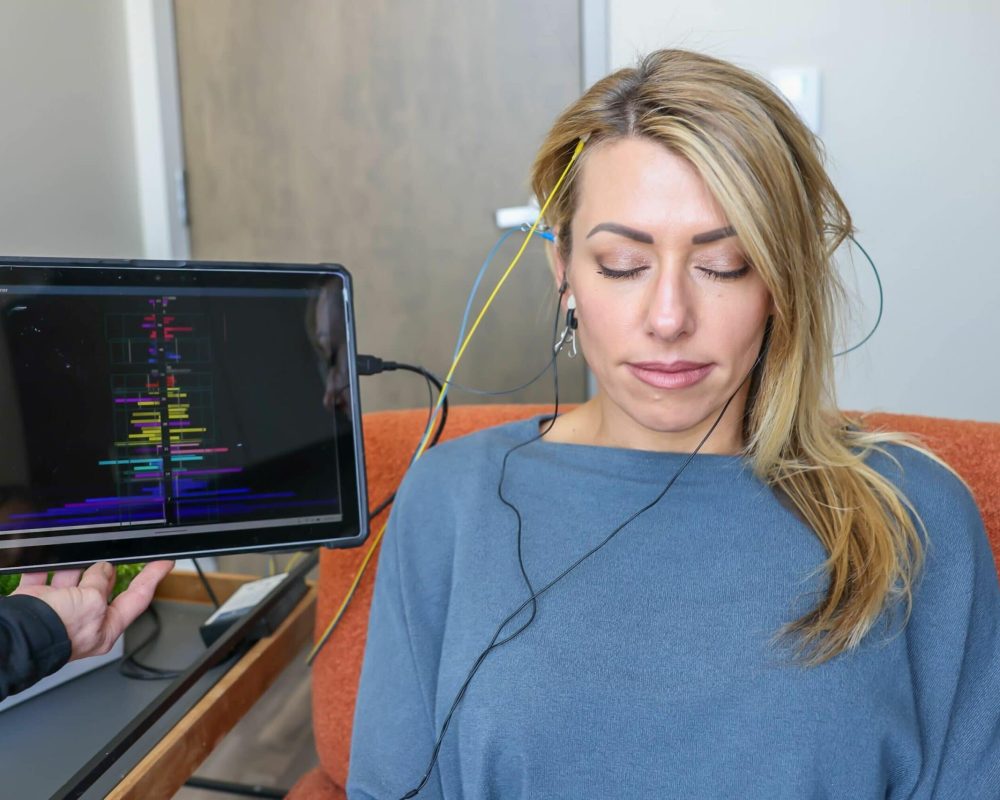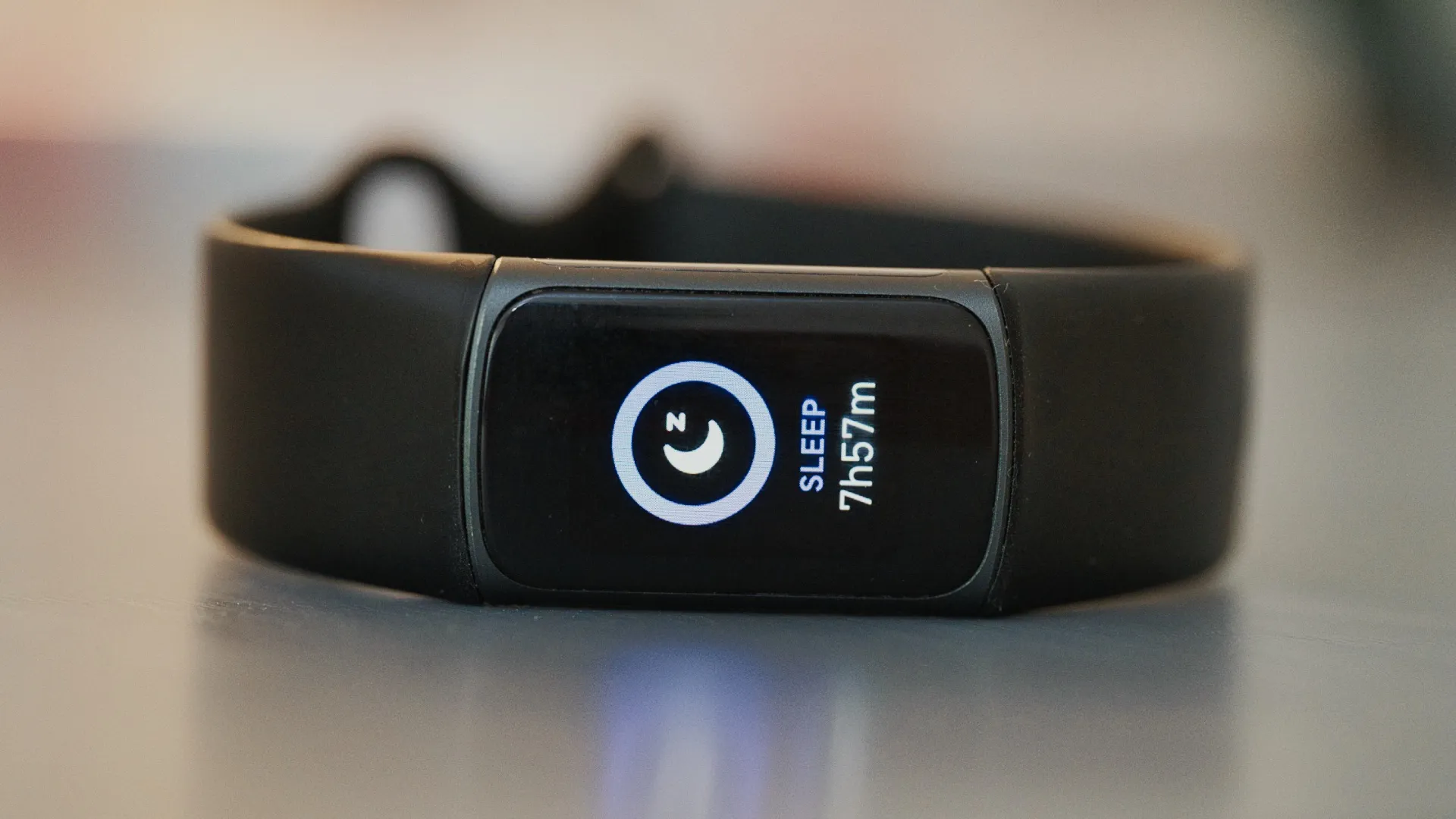Why Your $400 Sleep Tracker Is Basically a Very Expensive Lie Detector

You know what’s funny? I spent two years obsessing over my sleep data. Two years.
Every morning, the same ritual: grab my phone, check the app, and feel terrible about myself. “Wow, only 23% deep sleep? No wonder I feel like I got hit by a truck.”
My Fitbit became a passive-aggressive roommate, constantly judging me. Telling me I was “restless” 47 times last night. Thanks, Captain Obvious. I was there.
But here’s what really gets me: knowing I slept badly doesn’t help me sleep better. It’s like having a smoke detector that never stops beeping but won’t tell you where the fire is.
The National Sleep Foundation reports that half of us feel exhausted 3-7 days a week. Half! We’re basically a nation of walking zombies, clutching our smartphones, desperately searching for answers in colorful charts that tell us absolutely nothing useful.
What if someone told you there’s tech that doesn’t just track your crappy sleep—it actually stabilizes the brain glitches causing it? Not with another “breathe deeply” app, but by literally retraining your bio-electrical network.
How About Some Real Honesty?
Dr. Brian Chen from the Cleveland Clinic is the voice of reason on this subject. He says these gadgets show “how long you’re sleeping and how well you’re sleeping.” Notice what’s missing? Any mention of actually HELPING you sleep better.
This situation creates the most frustrating cycle imaginable:
- Feel terrible
- Check tracker
- See terrible numbers
- Read generic advice (“try chamomile tea!”)
- Feel worse
- Repeat tomorrow
If you’re dealing with severe insomnia or anxiety keeping you awake, this whole song and dance feels like humiliation on speed dial. It’s like some medical “legend in his own mind” doctor diagnosing your broken leg and recommending you “walk more carefully.”
Finally: Technology That Actually Does Something
Okay, story time. While everyone was getting frustrated with these fancy sleep monitors, a practice called Sleep Recovery was quietly working on something completely different.
They began utilizing unique, FDA-approved brainwave entrainment technology and not just monitoring.
Think of it this way: your current tracker is essentially a very expensive thermometer. It tells you you’re sick, but can’t make you better. Sleep Recovery is more like the voice of common sense.
The tech they have is genuinely wild. It uses next-level brainwave biofeedback to spot unstable EEG patterns. Then – and this is the remarkable part – it utilizes targeted entrainment to retrain your brain to return to healthy sleep rhythms literally.
Results? The mean-average client reports a ninety-two percent success rate. 92%! Through proper screening, obviously. It doesn’t, of course, work on everyone. They’re not miracle workers. Phone consults are totally free. And if they don’t think you’re a good candidate, they’ll actually tell you.
What makes this even more brilliant is that they address sleep problems and anxiety together. Because duh, they’re connected. Ever lie awake at 3 AM with your brain spinning like a hamster wheel? Same neurological mess, different symptoms.
The treatment itself is pretty simple. Thirty minutes. Every other day. That’s it.
Their goals aren’t guaranteed. But they’re not wishy-washy either:
- 6.5-8.5 hours of quality sleep nightly
- 5-6 nights per week consistently
- Approximately an 85% reduction in anxiety
Actual numbers. Not “improved sleep quality” or other vague nonsense.
Safety-wise? FDA approved for use in individuals aged three to 85—sixteen years of clinical experience.
Most people start noticing changes around session three. Some improve immediately. I read about one person who fell asleep during their FIRST session.
Catherine B’s Journey Through Sleep Recovery

They provide personal coaching, too (something called Anxiety Awareness training), and phone support. Free consultations without making you sign up for anything. Novel concept, right?
Been doing this since 2008. Sixteen years of experience. Rock-solid reviews and references. This isn’t a startup experimenting with new technology. It’s an established, proven methodology.
Personalization That Actually Means Something
Here’s where Sleep Recovery destroys conventional insomnia treatment approaches.
Your sleep app gives everyone identical advice. Poor score? Earlier bedtime. Restless night? Meditation app. One-size-fits-all recommendations that ignore individual brain differences.
Sleep Recovery? Total opposite approach.
They begin with a comprehensive screening to identify your specific brainwave irregularities. Not some generic pattern. YOUR brain. YOUR problems.
Their predictive brainwave biofeedback creates custom protocols targeting your exact neurological instabilities. They’re not jamming square pegs into round holes.
Coaching adds another personalization layer. Technology handles the brain retraining. Humans handle everything else. Questions, concerns, and daily integration. Both are working together.
An innovative approach, when you think about it. Even sophisticated tech works better with experienced professionals guiding the process.
The Science Actually Backs This Up
Research on brainwave entrainment continues to accumulate. Italy’s pro football team did it for 30 days and won the World Cup in 2008. Their self-reports? Massive improvements in sleep quality and performance.
Professional athletes have intense training schedules. If it works for them, imagine regular people dealing with everyday stress.
Audiovisual entrainment (AVE) research shows consistent results. Light and sound stimulation effectively synchronizes brain waves to desired frequencies. Retrain your brain like a Ferrari.
Clinical trials investigating brainwave entrainment for cognitive enhancement, heart health, and behavioral issues. A broad research interest validates the legitimate therapeutic potential.
Firefighters’ study blew my mind. Irregular schedules, high stress, and dangerous work. Those getting sleep intervention? 46% fewer disability days. 24% fewer injury reports.
Better sleep leads to measurable improvements in workplace safety and a reduction in workplace violence. That’s not correlation. That’s causation.
Healthcare workers, police, and manufacturers – consistent benefits across professions. Real-world results, not just lab studies.
Choosing Your Sleep Strategy (Tracking vs. Treating)
Sleep Recovery operates responsibly. They’re disclaimers explicitly state they don’t diagnose, treat, or cure diseases. They recommend consulting a doctor about the program’s appropriateness.
Mature approach to innovation. The best solutions complement healthcare rather than replace it.
People face a fundamental choice: awareness versus intervention.
Traditional trackers excel at pattern recognition. Perfect for understanding basic sleep behaviors. But what happens when awareness isn’t enough?
Advanced intervention becomes valuable when awareness proves insufficient—have you been tracking for months? Understand exactly what’s wrong? Still can’t fix it? You need intervention, not observation.
Economics differ, too. Traditional trackers need continuous use. Stop wearing = lose insights. Intervention programs aim to achieve lasting neurological changes that persist beyond the end of treatment.
Safety Concerns with Brainwave Entrainment Across Age Groups?
FDA safety approval, non-invasive for all ages. Successfully treated ages 3 through the elderly. Protocols adapted for developmental stages—sixteen years of clinical use. Excellent safety record. It’s still smart to consult healthcare providers, especially if you have existing conditions. Better safe than sorry.
Realistic timeline for seeing improvements?
Most Sleep Recovery clients notice brain changes around session three. Individual responses vary, especially in the early stages of the 15-session program. Some individuals experience improvement after a single session, while others may require additional time for neurological adaptation. Sessions, held every other day, allow for gradual retraining while maintaining progress. Patience helps.
Anxiety-related sleep issues – can technology really help?
Traditional trackers identify anxiety-disrupted sleep patterns but can’t treat underlying anxiety. Sleep Recovery addresses both simultaneously, recognizing the shared neurological foundations underlying them. The program identifies brainwave instabilities contributing to both conditions. Comprehensive treatment versus symptom monitoring. Treats root causes, not symptoms.
The Real Deal: Tracking versus Treating
The evolution from basic monitoring to sophisticated neurological intervention demonstrates that health tech is advancing rapidly. Step counting to brain retraining. Pretty impressive progress indeed.
Americans struggling with poor sleep have legitimate reasons. Questions have shifted from “How do I track sleep?” to “How do I actually improve it?”
Programs like Sleep Recovery demonstrate that consumer-accessible technology can achieve indelible outcomes with proper professional support.
Which do you actually need?
Here’s my take after years of sleep tracking frustration: data without solutions is just masochistic Groundhog Day. You’re paying premium prices to feel bad about yourself every morning.
It could be time to try something that actually works.

